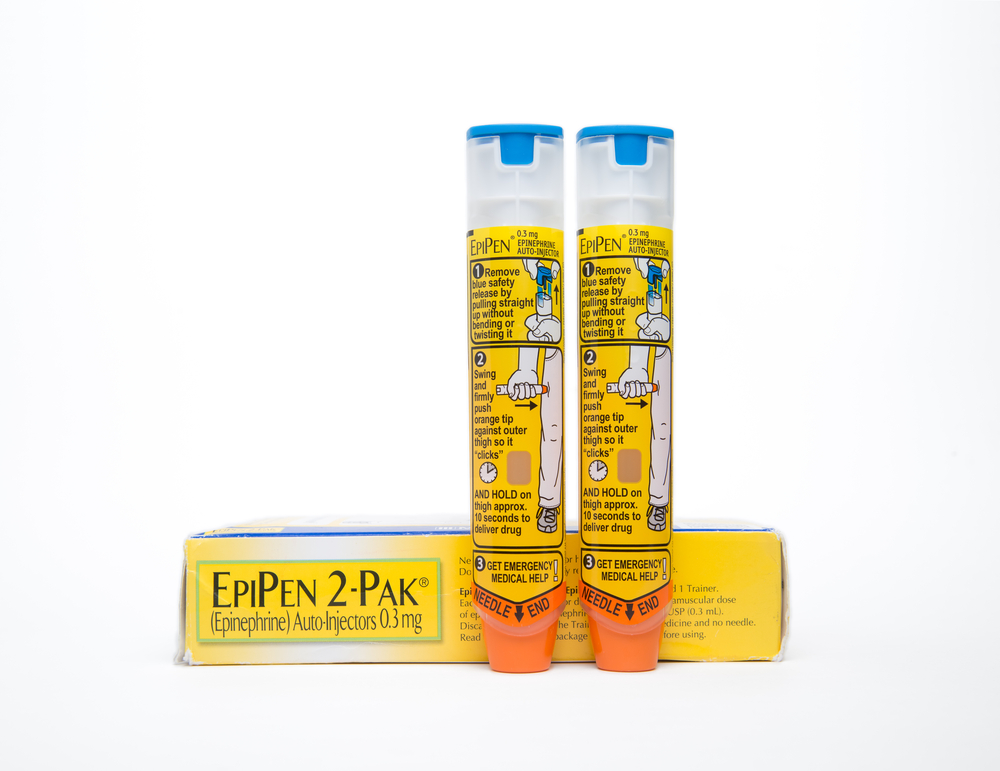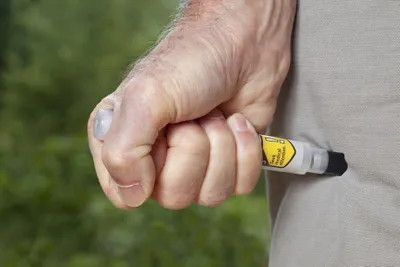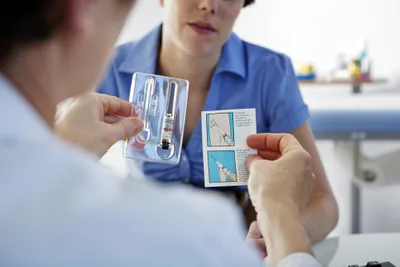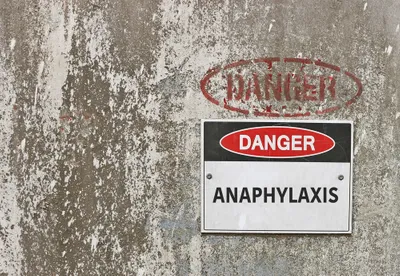The EpiPen, which is a clever industry name (based on its active ingredient of epinephrine) for an allergy injector that can potentially save a life, has been in the news lately for less than noble reasons. Specifically, the price of them has skyrocketed in recent years and has left some parents wondering what to do if their health plan doesn’t cover them.
Luckily, the current manufacturer of the EpiPen—Mylan—calmed some nerves by releasing this announcement that it would release a generic version of the product that reportedly will be more affordable. Controversy aside, here are some current stats and facts about the potential lifesaver…
1. Anaphylaxis is More Spread Out than Peanut Butter
The EpiPen is generally known as a lifesaving product for people who suffer from peanut allergies, but the EpiPen can treat severe associated allergic reactions called anaphylaxis from bee stings, to drug reactions, to exercise-induced cases.
The latter reaction is perhaps not as uncommon as you think, and causes “a warm feeling spreading throughout the entire body, itching and redness of the skin,” according to the manufacturer’s site. This type of reaction stirred up by sustained activity (jogging, for example) is still linked to foods or medications.
2. The Prevalence of Anaphylaxis is Alarmingly High
According to the Asthma and Allergy Foundation of America (AAFA), anaphylaxis is at least as common as 1 in 50-people in the U.S. based on a study by the organization. However, the foundation itself acknowledges this number could be a lot higher, around 1 in 20.
What’s perhaps more alarming is that the number appears to be on the rise, especially in children. A research team at McGill University in Montreal, Canada found that the number of emergency room visits to a children’s hospital in that city from severe allergic reactions doubled in just four years. Of those cases, 80.2-percent were triggered by food—namely peanuts and tree nuts.
3. Many Physicians Don’t Know How to React
According to a 2015 press release from the AAFA, despite the rising number of anaphylaxis cases in the U.S. (and elsewhere), many doctors are unaware of the “professional guidelines” when it comes to administering treatment.
The foundation points to “knowledge gaps” in doctors, including allergy specialists and those who work in emergency rooms. While most doctors surveyed know that epinephrine is the most important first step in getting a reaction under control, many did not know all the symptoms to look for including swelling and abdominal pain, adds the source.
4. Early Injection is Key
According to the manufacturer, when any of the symptoms start to appear, the EpiPen should be administered “immediately as prescribed”. The pen can be used regardless of other medical conditions or other medications, it adds (although it does warn that certain medical conditions can trigger side effects).
While getting a dose of epinephrine is commonly life-saving, McGill University also found that (in Canada, at least) many people having severe reactions show up to the hospital without using the product first. “Only slightly more than half of those who had an auto-injector used it prior to arrival in the emergency department,” notes the source.
5. There’s Different Doses for Different People
The EpiPen actually comes in two dosage strengths, meant to be appropriate for both children and adults. The manufacturer said that your doctor should make the call about which is appropriate for you (even though the choice might be obvious to you).
The standard EpiPen is for adults and children who weigh 30-kilograms (66-pounds) or more, while the EpiPen Jr is for children that weigh at least 15-kilograms (33-pounds). The junior version delivers 0.15-milligrams of epinephrine, and the company suggests you should “consider using other forms of injectable epinephrine” if lower doses are needed.
6. The Drug Actually Increases Your Blood Pressure
It may seem counter-intuitive to think that raising your blood pressure when you’re in an allergy-induced panic is a smart move, but apparently this is how an EpiPen works. The manufacturer says that epinephrine constricts blood vessels, which naturally leads to higher blood pressure to maintain circulation.
However, in the process, the drug also stimulates the heart (part of the whole blood pressure thing, presumably), “relaxes smooth muscles in the lungs to reduce wheezing and improve breathing,” and can also reduce swelling or hives that can appear on the face from a reaction.









